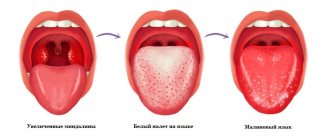Consultation “Why do children in kindergarten get sick so often?”
Alexandra Kolmakova
Consultation “Why do children in kindergarten get sick so often?”
Children grow up , go to kindergarten , and mothers clutch their heads: the baby simply does not get out of colds and is constantly “hooking”
viruses.
Parents, of course, blame the neglect of teachers and poor conditions in the group for these misfortunes. But in fact, such pain , according to pediatricians, is the norm for organized child care institutions . Even if the child is not one of the frequently ill children with compromised immunity, in a year, according to statistics, he gets ARVI and influenza 3-5 times.
If a child goes to kindergarten, at first he will suffer from respiratory infections more often than at home
child.
After all, any cold is caused by viruses. more than 200 varieties of them , and new ones are added every year. Until the baby gets acquainted with, if not all, then at least 50 different most common viruses, he will regularly be bothered by snot, cough and fever. Moreover, the course of the disease will not be severe , most likely, but simply tedious: most viruses cause mild ailments, and the result of their impact on the child’s body is: the baby succumbs for a couple of days, and then jumps again. Only 2-3 times per season the baby gets quite sick .
Also, when a child begins to attend preschool, the immune system weakens due to nervous tension. The child may even like going to kindergarten, he calmly lets his mother go, but he still gets sick in the kindergarten .
After all, kindergarten is a burden on the child’s nervous system. There are a lot of children there who are making noise all the time, and there is always some kind of activity going on there, even if it’s interesting, but that doesn’t make it any less tiring.
And as a result, from constant overexcitation, the child’s body turns on a defense mechanism, and the child gets sick . This effect can be minimized. To do this, the time spent visiting kindergarten must be increased gradually. Or there is another option: at first, give the child a day off in the middle of the week.
Another option is a child who gets sick in kindergarten due to difficult adaptation.
With all the accompanying signs: does not let go of parents, constantly asks about them, does not play with children, and the like. Therefore, again, the child’s nervous system is depleted and he gets sick . And this is where parents often make a big, fat mistake. When is ill , they carry him around like a sack. He is allowed to do whatever he wants. He watches cartoons for hours, plays with all the toys, and, in general, enjoys life. And then he is again taken to the kindergarten, where he must adapt to the team, to the rules of behavior, where the teacher does not rush headlong to fulfill all his whims. And being sick at home is so good ...
And guess what happens to the child after a maximum of a week of visiting the kindergarten? Right. He gets sick , he is groomed and cherished again. And if he also sits with his grandmother, then she usually spoils him so much that he definitely doesn’t want to go to kindergarten later.
How to break out of this vicious circle? After all, this can last for a very long time, not only a couple of months, but also a year, or even two. It is necessary to make sure that it is “unprofitable”
to get sick . That is, exclude all the benefits of disease . “Sick children should not watch cartoons
,
“Sick children should not jump around the apartment like a saiga
,” and the list goes on.
It must be boring for a child to be sick . And then a miraculous healing occurs, with a maximum of one or two relapses. And then the child stops getting sick .
Since preventing childhood colds is a truly serious problem, their prevalence and incidence have long been calculated (and recalculated annually)
.
So, according to statistics, in the first “kindergarten”
year, about half of 50% of kids get quite
sick with all kinds of volatile and other infections. The second year in kindergarten becomes just as painful for mothers of only 20% of babies.
And in the third year, only 10% are still constantly sitting at home on sick leave. The same is with the severity of diseases . There are six severe colds in the first year, and at most two in the second year.
All these difficult events do not indicate the unprofessionalism of educators or the oversight of parents, but only that the baby is actively developing immunity.
In a year or two, a child will develop resistance to almost all viruses floating in the air around him - both at home and in public places. But at school he is not threatened with permanent absences due to illness .
In general, pediatricians claim that the relationship between kindergarten and ARVI diseases is greatly exaggerated by parents: kindergarten children get sick only 13% more often than those who stay at home with their grandmothers and mothers. But at school, the kindergarten who are constantly suffering from colds and the seemingly healthy children at home change places: the children at home simply do not get out of the cold, and the children in kindergarten get sick less often , miss fewer lessons, and study accordingly better.
Can it be protected?
One hundred percent - no, but in any case, some preventive measures will benefit the child.
Hardening is one of the important but often ignored methods. A child who was not wrapped up, not dressed in two jackets for walks, and not raised in too hothouse conditions, even if he gets sick , will endure a cold much easier. And not every infection can attach itself to it.
Another simple way is to wash your hands more often during epidemics. Viruses travel through the air, but we don't just get infected because someone coughed on us. Pathogens settle on door handles, railings, toys - and are able to live “in the wild”
few hours.
Therefore, a child must be taught to wash his hands not only before eating or after a walk, but also regularly between these events - 10–20 times a day. It also makes sense to get rid of the habit of grabbing your face with your hands, especially your nose and the mucous membranes of your mouth and eyes. It is estimated that every person (not just children)
puts their finger in their nose, eye or mouth 300 times per day!
A deficiency of vitamins and minerals in the body leads to weakened immunity. Vitamins are natural immunomodulators. Unlike immunomodulatory drugs, their benefits have been tested for more than one generation. There is a group of vitamins that have a strengthening effect on the immune system - these are vitamins A, E, C, as well as a source of vitamin A - beta-carotene.
Do not rush to stuff your baby with medicine if he is sick .
Let his own immunity learn to cope with the problem. Don’t rush to lower your temperature, eliminate snot, or fight your cough. Sputum, mucus, fever - all these are signs that the body is fighting the pathogen, that the child’s immune system is trying to cope with the problem on its own. So there is no need to disturb him.
A child's immunity is determined by lifestyle.
It is stronger in those children who spend a lot of time outdoors, move a lot, eat when hungry and drink cool drinks. Therefore, the best thing a mother can do is to walk a lot with her child, provide him with the opportunity to run, jump, and climb a lot, and not force him to eat. The apartment should be ventilated more often and try to maintain normal humidity. Greenhouse conditions and excessive sterility are harmful to the immune system, as it remains untrained. You can also irrigate the nose of a child who comes home from kindergarten in the evenings with a weak saline solution (1 teaspoon per liter of water or drugs from a pharmacy such as Aqualor, Salin). This is a good prevention for the development of viral infections, since the virus multiplies much faster on dry mucous membranes. Oxolinic ointment, or Viferon ointment, will also help the child not become infected with the virus.
These measures are quite enough, although mothers really want to believe that there are magic pills that will strengthen the immune system and the child will not get sick . But the whole point is that a child needs to get sick so that his immune system matures and the baby turns into a healthy adult who rarely gets sick .
Is this a cause for concern?
Despite the fact that in Soviet times doctors had such a term as “frequently ill child,” modern pediatricians do not establish any “cold norm.” If a child attends kindergarten or school, he can suffer from 6 to 12, or even 15 episodes of colds per year, and this does not indicate any health problems. In the period from October to April, kindergarten children can be constantly covered in snot, since, without having time to fully recover, they become infected with a viral infection again, and this is also not a reason for alarm. The frequency of colds depends on the age of the child - usually, until the age of 1-1.5 years, children rarely get sick, but then their social circle expands, there are more contacts - and a series of ARVI begins. When children enter kindergarten, colds become even more frequent and subside somewhat by elementary school. All this is not a deviation and should not frighten parents - the child becomes acquainted with new viruses and acquires the necessary immunity. Therefore, there is no need to count the number of illnesses suffered, you just need to record what childhood infections the child has already had. And frequent colds do not require the close attention of doctors and parents - the baby will definitely outgrow them.
Article on the topic Cold or flu? What is the difference between them and what do they threaten? Of course, all this applies to uncomplicated diseases that do not require the use of antibiotics. If, after each ARVI, the child begins to develop bronchitis, the baby is plagued by frequent otitis media, pneumonia, sinusitis, and infectious skin diseases, then it makes sense to consult an allergist-immunologist to identify the causes of these complications. In the absence of such symptoms, there is no point in talking about reduced immunity. Moreover, there is no such concept in medicine - there is immunodeficiency, both congenital (usually occurs as a result of genetic disorders or pathology of intrauterine development) and acquired (can appear after some serious diseases).
Don't mess around!
Frequently ill children do not need a special regime; they do not need to be wrapped up and hidden from everything in the world. The child’s immunity needs to be allowed to develop, and this can only be done in one way - by introducing the immune system to the largest number of viruses and bacteria.
Moreover, children get sick more often from excessive heat and stuffiness than from cold, so try to regularly spend time with your child in the fresh air and keep the apartment cool. Don't forget to use a humidifier in your baby's room so that the mucous membranes of your baby's nose and throat don't dry out and become more susceptible to infections.
As for kindergarten, you should not refuse to attend it. If a child suffers from ARVI without complications, let him go to kindergarten. If the baby is forced to take antibiotics month after month, if possible, give the child a vacation for 3–4 months. And then you can go back to the garden.
ARVI, sore throat and flu
In the garden such diseases are inevitable. It is impossible to insure against them. It is useless to smear the baby’s nose with oxolinic ointment, rinse with saline solution, or instill garlic infusion into each nostril. The child is still sick. Tested from my own experience.
- ARVI
is transmitted by airborne droplets. All you have to do is sneeze, and the infection immediately spreads through the air. The disease begins suddenly, a cough and runny nose appears, then the throat turns red, and the temperature may rise. - Flu
is a very dangerous infection that causes various complications if treatment is not started in time. Aches appear all over the body, chills, and a high temperature rises. - Sore throat,
unlike other viral infections, is caused by streptococci. Treatable only with antibiotics. A white coating appears on the tonsils in the mouth. The child finds it painful to swallow and refuses to eat. Temperatures can rise to 40 degrees. The eldest often had a sore throat, so we constantly gave him antibiotics.
You can get vaccinated against the flu, but there is no way to insure against a sore throat. There is one way - strengthening the child’s immunity.
There is no magic pill
Often parents try to strengthen the immunity of a frequently ill child with the help of various drugs, not always understanding what these drugs are. The magic word “immunomodulators” excites the minds of mothers and fathers, forcing them to look for similar products in the pharmacy. In fact, immunomodulators are used only for the correction of serious immunodeficiencies or hematological diseases after a thorough examination and appointment by an immunologist. There are few children for whom these remedies are indicated, and all of them, as a rule, are observed in specialized centers. Of course, a healthy child does not need such drugs; moreover, they can cause harm.
It’s not worth buying “something for the immune system” at the pharmacy: most of these products are drugs with unproven effectiveness and a high risk of side effects, poorly studied and often banned abroad.
Article on the topic
Snot again! What to do to prevent your child from getting sick in the garden Therefore, it is better to take care of your child’s immunity in other ways. Among them:
Vaccination . Vaccinations will teach the immune system to cope with particularly dangerous infections.
Lifestyle . A balanced diet, adequate sleep, fresh air, no passive smoking, minimizing psychological stress - all this benefits the immune system.
Hardening . Although it will not protect against ARVI, it will reduce the frequency and duration of complications after the disease. And, although today there is not a single hardening method with a fully proven effect, most doctors agree that such procedures can be beneficial for health. Just don’t immediately resort to extreme measures like dousing yourself with ice water or walking barefoot in the snow. Start with cool hand and foot baths, frequent ventilation of the room, and gradually lowering the temperature in the child’s room.
Vitamins and microelements . Improves protection against infections. If your child is often sick, it makes sense to check the level of iron in the blood and, if it is low, start taking appropriate supplements. Pediatricians also recommend that children under 3 years of age take vitamin D. But given the lack of sunlight that every resident of our country faces, supplements with this vitamin can be taken throughout life. As for multivitamins, they are probably useful in the diet, but there is no scientific data confirming that taking such complexes reduces the incidence of ARVI.
Goodbye cold! What is better: medicines or folk remedies? More details











